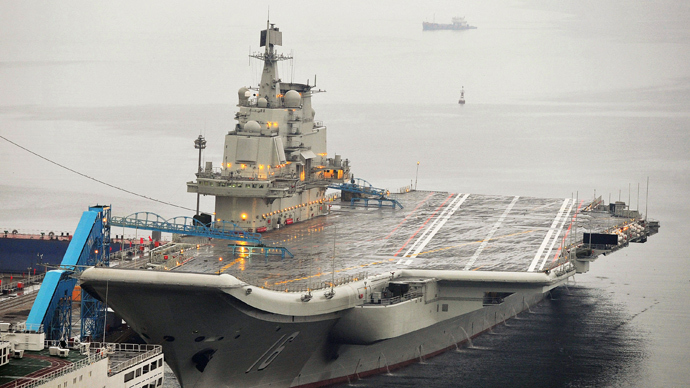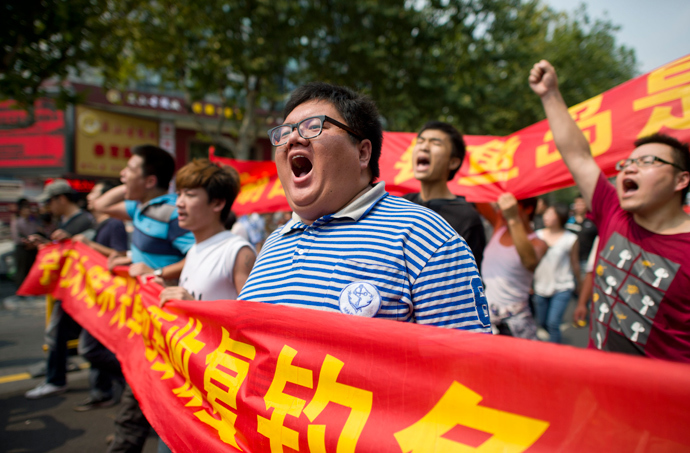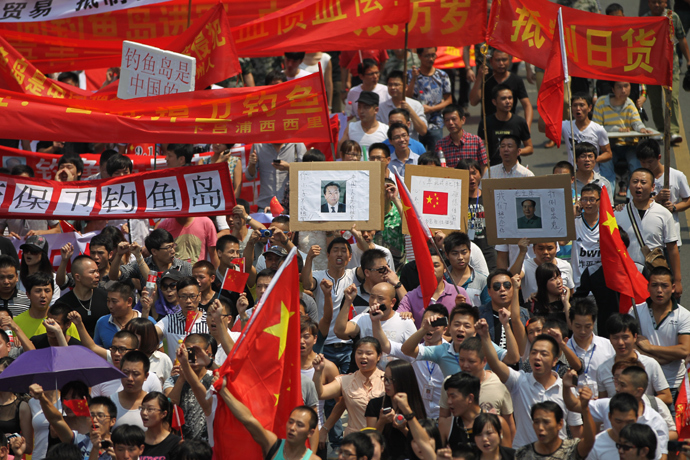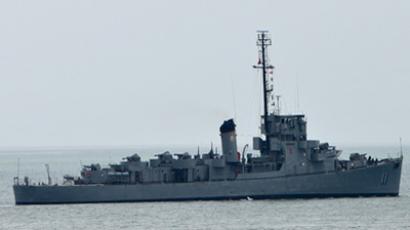China tipping balance: Japan warns ‘risky behavior’ may trigger ‘incident’

Tokyo is increasingly under threat from an emboldened China and an unpredictable North Korea, a Japanese defense paper says. Accusing China of “coercive” tactics, Japan is pushing to amend its pacifist constitution and pave the way for a standing army.
Tokyo released its first regional defense report since a
territorial dispute over a set of islands in the East China Sea
erupted last year. The paper notes that tensions have continued
to build and “are becoming increasingly tangible, acute and
serious."
"China has attempted to change the status quo by force based
on its own assertion, which is incompatible with the existing
order of international law," the report said, underlining
comments made by Prime Minister Shinzo Abe on Sunday. It added
that China should stick to “international norms.”
Over the last couple of months China and Japan have been trading
diplomatic blows over so-called territorial violations
surrounding a group of islands to which both countries lay claim.
Beijing calls them the Diaoyus, while to the Japanese they are
known as the Senkakus.

Japan argues the islets are legally and historically located on
Japanese territory, however, Beijing believes they were
“stolen” from China at the end of the Sino-Japanese war in
1895. Taiwan also lays claim the small group of islands.
The area around the islets is believed to hold significant fuel
deposits.
“China's activities include its intrusion into Japan's
territorial waters, its violation of Japan's territorial airspace
and even dangerous actions that could cause a contingency,''
wrote the report.
Back in February the Japanese government claimed a Chinese naval
ship had locked fire control on to a Japanese destroyer in the
area, escalating tensions between the two countries. Beijing
denied the allegations, but the defense paper dismissed the
Chinese assertions as “inconsistent with the facts.”
Tokyo has also scrambled fighter jets a number of times in
response to what it claims were airspace violations by China.
Massive protests swept China last August with thousands
demonstrating against “Japanese imperialism.” Activists
targeted Japanese companies and cars, vandalizing local
businesses.

Beefing up defense
In response to the island dispute and the growing threat from the
Korean Peninsula, Tokyo has raised its defense budget for the
first time in 11 years. Moreover, PM Abe is trying to revise the
Japanese constitution to allow for collective military action.
Japan will hold elections in the upper house of parliament on
July 21 and if Abe’s Liberal Democratic Party (LDP) obtains the
majority it will be a step closer to pushing through the
amendment.
The LDP has also recommended stepped up the military presence
around the disputed islets by deploying a naval division in the
area.
A change to the Japanese pacifist constitution could potentially
upset relations with Tokyo’s neighbors in the region and further
escalate tensions.














